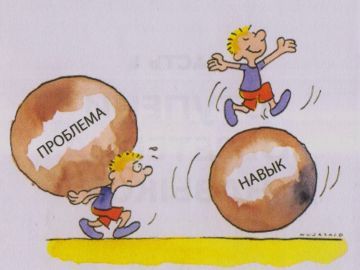Goal: development of communicative competence and emotional intelligence to achieve the goals working with people, learning coaching tools
Coaching tools serve the development of people and integrate with other tools used for this purpose.
Training for 30% consists of theory and 70% of practice.
During the training, participants learn coaching tools from personal experience, set goals, and form a plan for their development. By learning to help others, we will help each other become more effective.
After training in the "budding" format, develop their skills in coaching to introduce changes in each other's behavior, achieve their goals.
Tasks:
- Introduce the position of a coach in working with people.
- Introduce the main approaches in coaching, areas of application.
- To teach how to use coaching tools in working with people to solve your business problems.
- Teach how to reinforce positive outcomes.
- To contribute to the achievement of ambitious goals.
Results:
- The ability to set conscious goals and form a plan for individual development.
- The ability to build boundaries of responsibility.
- To learn how to develop emotional intelligence in yourself and others.
- The ability to conduct a conversation using the method of questions, to listen.
- The ability to separate facts from opinions.
- The ability to increase the level of awareness of the interlocutor for safety and personal efficiency, a new quality of life.
- Transformation of negative dominants.
- The ability to restore mental balance, balance in behavior.
- The ability to accompany others through the process of change.
- The ability to identify stress levels.
- The ability to desensitize a stressful state, bring another to a working state.
- The ability to shape the resource states of others to achieve goals.
- The ability to restore the internal balance for sustainable development.
Training program
1. Introduction
- Philosophy and definition of coaching (international coaching federation).
- The history of the development of coaching. Types of coaching.
- Principles of coaching
- Goals of coaching.
- Types of "customers".
- Coach position. Rules and environmental friendliness.
- Coaching competencies.
- Wheel of Life Balance.
- Conclusion of a contract, clarification of areas and boundaries of responsibility.
2. Ability to conduct a conversation using the method of questions
- Types of questions.
- Types of listening: passive, active, empathic, generative.
- Prim language and standard language.
- Language Practice - Note
3. Five Steps of Developmental Dialogue
- Building trust. Establishing rapport.
- Request discovery: clarifying expectations, assessing the situation, well-formed goal conditions.
- Brainstorming: opportunities, resources, obstacles.
- Support: emotional support, action plan.
- Feedback: Zones development, strengths, recommendations.
4. Identification of negative dominants
- Belief classes.
- Defining the dominant.
- Causes and stages of development of dominants in perception and behavior.
- Dominant properties.
- Signs of negative dominants.
- Emotional barometer.
- Diary of emotions. Awareness of unjustified feelings and behavior.
- Automatic detection unconstructive reactions to external events.
5. Ways to change the dominant
- Mindfulness practice.
- Desensitization.
- Developing conscious actions for self-regulation.
- Levels of activity at which new dominants are developed.
- Positive reinforcement.
6. Basics wingwave-coaching for working with dominants
- Basic concepts and rules. Areas of application.
- Myostatic test.
- Stress assessment
- PDG. How to get a person out of a stressful state.
- Identification and anchoring of resource states to achieve goals.
7. Metaprograms
- Types of metaprograms.
- Speech behavioral patterns to identify metaprograms.
- Negative manifestations of extremes.
- Early signals of efficiency loss, imbalance.
- Revealing the desired state.
8. control technologypolarities - chronic contradictions
- The concept of "polarity", the difference between "polarity" from conflicts.
- Understanding the nature of polarities, the ability to see polarities in your team and company.
- Model, principles and tools for managing polarities.
- Principles of working with polarities for making an informed decision.
- Practice managing polarities.
- Highly effective actions for conflict management.
9. Feedback
- Types of feedback.
- WATCH, GROW, ORID feedback models.
- Principles for successful feedback
- Scaling.
- Rules of positive reinforcements.
- Assessing the success and effectiveness of coaching.







































